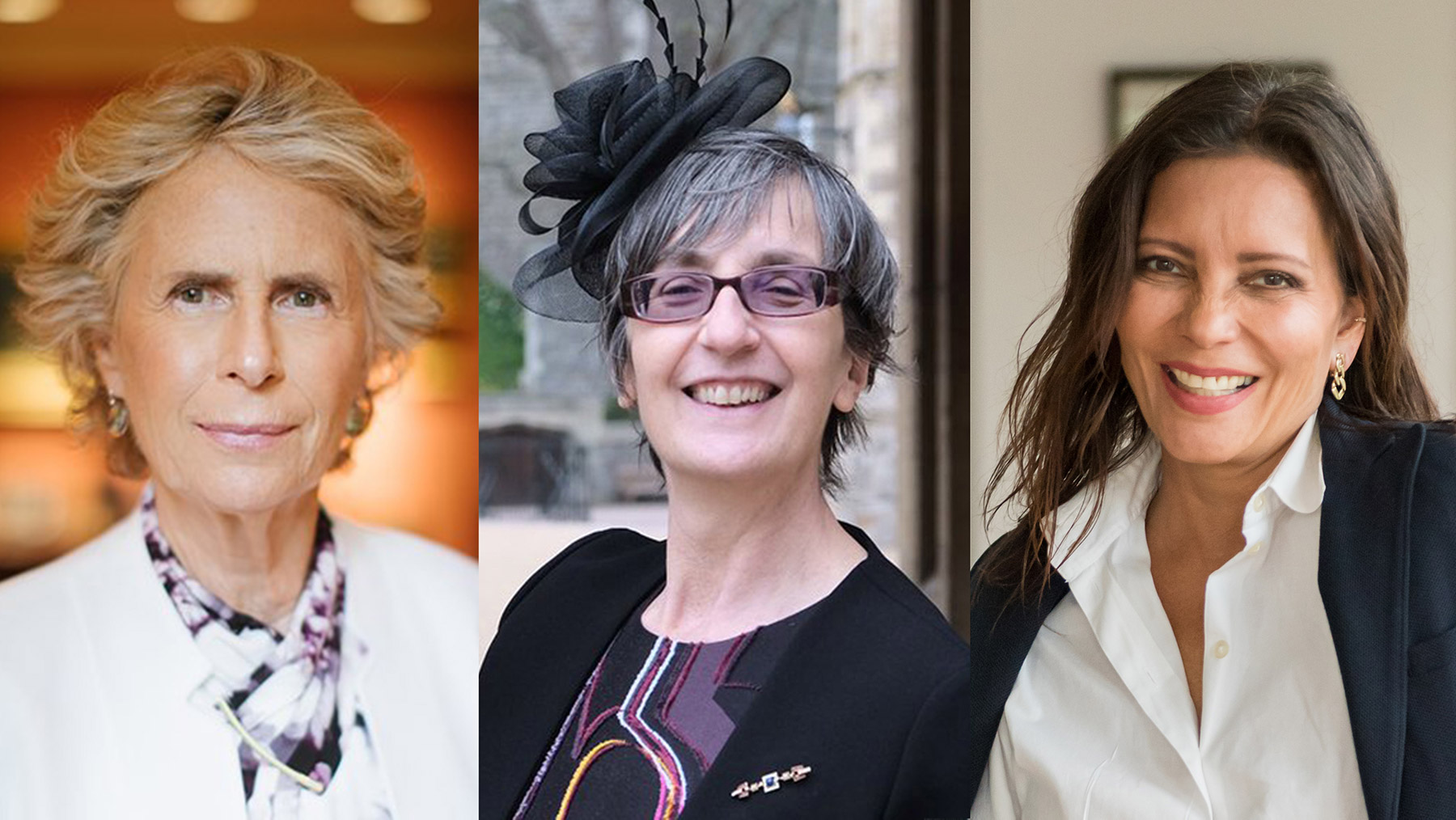VIDEOA Conversation on Women’s Rights: Present and Future
VIDEOA Conversation on Women’s Rights: Present and Future
Three champions of women’s rights—two Vassar alumnae and one with family ties to the College and to its alumnae that date back more than a century, took part in “A Conversation on Reflections on Women’s Rights Present and Future,” an online panel discussion hosted by Vassar’s Office of Regional and International Programs on December 6, 2020. Panelists were Los Angeles attorney and film producer Brenda Feigen ’66 and Helen Pankhurst, OBE, a former Vassar College Clark Scholar and women’s rights activist.

Feigen co-founded the Women’s Action Alliance; its newsletter later became MS magazine, which she co-founded with Gloria Steinem. Feigen went on to co-direct the Women’s Rights Project with the late Supreme Court Justice Ruth Bader Ginsburg.
Pankhurst, OBE, is Chancellor of the University of Suffolk in the UK and a founder of the Centenary Action Group, a coalition of activists seeking to end barriers to women’s political participation.
Valerie Paley ’83, Senior Vice President, Chief Historian, and Director of the Center for Women’s History of the New-York Historical Society moderated the discussion. Last year, Paley curated Women March, an exhibit focused on commemorations of the 100th anniversary of the adoption of the 19th Amendment, which granted voting rights to women in 1920.
As she introduced the panelists, Vassar President Elizabeth Bradley noted that many women associated with the College had been active in the women’s rights movement for more than 150 years. Pankhurst is the great granddaughter of Emmeline Pankhurst, a founder of the Women’s Social and Political Union, who worked closely with activists Crystal Eastman, class of 1903, and Inez Mulholland, class of 1909.
Pankhurst, who has worked to advance women’s rights in Ethiopia and other countries as senior adviser to CARE International, said her experience had taught her that constant vigilance is necessary to preserve these rights. “We need to claim the power we’re entitled to, and we don’t do that often enough,” she said. “The struggle for women’s rights, like all human rights, is like a rubber band. You can pull it but if you let go, it snaps right back again.”
Feigen said that during her decades of work in the women’s rights movement she had learned to react quickly when the rights of women are threatened. “Whatever and wherever the cause,” she said, “my mantra is to stand up and face it right away—don’t wait.”
Paley said that while the leaders of the women’s rights movement deserve to be honored for their work, she wanted to illustrate in her exhibit, Women March, that “all of the people who have shown up at the rallies throughout the history of the movement should be celebrated as well.”
Following the event, Feigen said her only regret was that it could not be held at the College due to the COVID-19 pandemic. “I would love to be able to go back to Vassar and appear with Valerie and Helen in a similar event for the students and faculty,” she said.